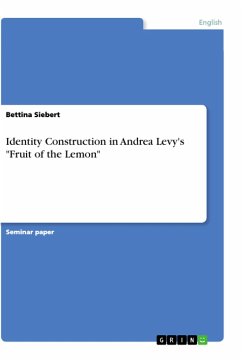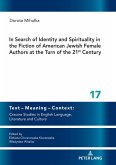Climate change, the rise of right-wing parties across Europe, the growing power and impact of social media or the Covid-19 pandemic - the discussions surrounding some of the most pressing issues of our times lay bare growing chasms between conflicting group interests, hierarchies and identities. In light of these debates, understanding how groups are constructed, how identification processes work and what may lie behind inclusion and exclusion seems more relevant and pertinent than ever. This book sheds light on how 21st-century British fiction represents the relationship between groups and individual identities and also zooms in on the construction of groups as social entities. By doing so, this study highlights the importance of literature and literary studies in understanding (and possibly even bridging the gap between) some of the divides between groups in the 21st century.Contents1. Introduction11.1 Studying Groups in Literary Studies: Aims and Methodology41.2 State of Research: Group Studies across the Disciplines72. Establishing a Theoretical Framework: Groups and Identities112.1 "I - Me - Us": The Nexus of Groups and Individuals122.1.1 Contextual Selves? Personal and Social Identity122.1.2 Interactive Selves162.2 Groups as Social Systems183. Groups and Identities in Literary Narratives253.1 Forms, Functions and Ways of Narrative Representation253.2 Three Stages of Groups and Group Identities303.2.1 Becoming: Similarity and Difference313.2.2 Belonging: Experience and Performance343.2.3 Maintaining: Memory and Group Identity as Inseparable Concepts364. Becoming: New Constellations, New Beginnings424.1 Challenging Perceptions of Similarity and Difference: Andrea Levy's Small Island (2004)434.2 Similarity in Difference: Nick Hornby's A Long Way Down (2005)574.3 Comparative Conclusion: Negotiating Group Identities695. Experiencing Group Identity: Performing "Faithful Allegiances"735.1 Ambivalent Roots: Zadie Smith's NW (2012)745.2 Comparative Conclusion I: Collective Spaces895.3 Forms and Formations: Jon McGregor's Even the Dogs (2010)965.4 Comparative Conclusion II: Performing Groups through Narratives1096. Maintaining Group Identities: Shared Pasts and Entangled Lives1136.1 Groups That Never Let You Go: Julian Barnes' The Sense of an Ending (2011)1146.2 Sensing the End in Kazuo Ishiguro's Never Let Me Go (2005)1266.3 Comparative Conclusion: Memories as Tools for Belonging1427. Outlook and Concluding Remarks1458. Works Cited154
Bitte wählen Sie Ihr Anliegen aus.
Rechnungen
Retourenschein anfordern
Bestellstatus
Storno








